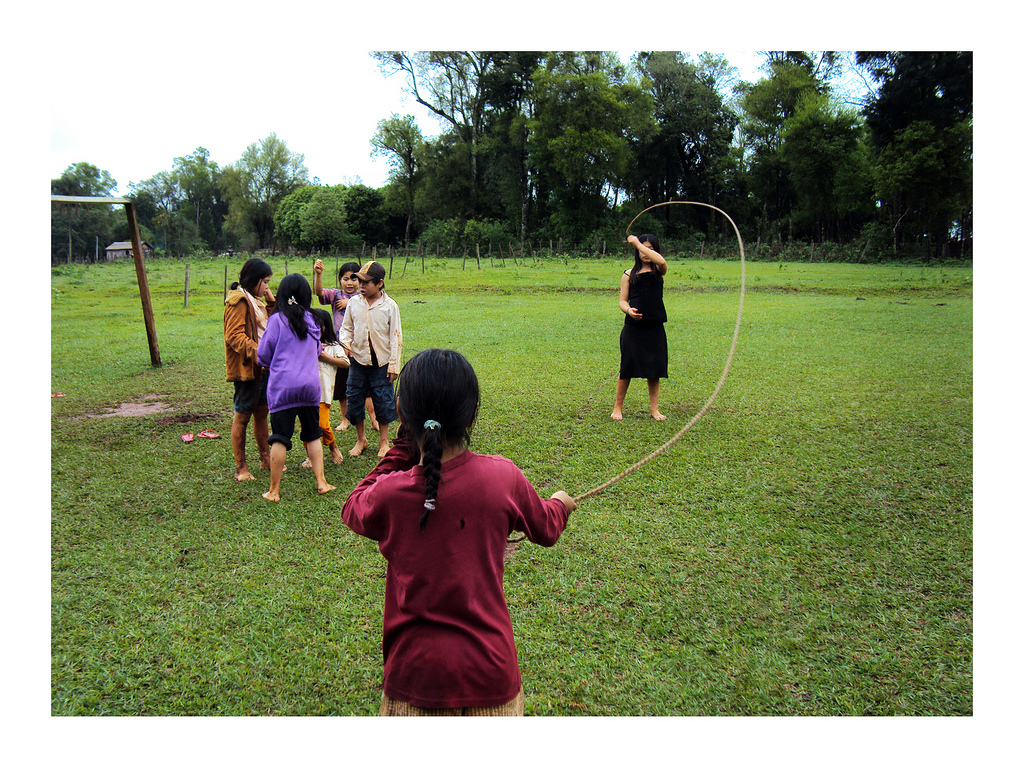For much of their history, the Aché indigenous people in Paraguay have been struggling to preserve their territory. Now, the Aché are using citizen media to preserve their language and their culture. The blog Aché Djawu [es] (“The Aché Word”) and several Twitter accounts [es] provide a glimpse inside six Aché indigenous communities.
After a genocide that reduced their population to 350 during the 20th century, the Aché have been slowly growing into six communities with approximately 1500 members in Northern and Eastern Paraguay.
This year, the Aché Djawu (“The Aché Word”) project was selected as one of the newest Rising Voices grantees. Rising Voices director Eduardo Avila explains:
The purpose of the project is to identify several young people from each of the six Aché communities to take part in intensive skills-building workshops in the use of blogs, digital photography and video, as well as social networking, as a way to preserve and promote their language and culture.
In the following video, Marciano Chevugi from the Aché Chupa Pou community invites netizens to visit the blog and follow the community on Twitter. Chevugi also thanks everyone that is supporting them in rescuing and protecting their culture. (Note: Chevugi starts speaking in Aché for a brief moment and then speaks in Spanish. The Spanish section of the video has been subtitled into English by Eduardo Avila)
The blog plays an important role in documenting the history of these Aché communities. A post [es] from April 29, 2012 tells a brief history of the Aché community of Chupa Pou. In the post Chevugi explains that the community was founded on May 9, 1979 by a group of Aché and a Divine Word missionary. Chevugi also writes that the community currently has 8600 hectares of natural forests along the Jejui Guazu river in the Canindeyu Department:
[…] hoy la comunidad tiene 120 familias, en total 600 habitantes, cuenta con escuela y colegio; 220 alumnos en total, hoy una nueva construcción de puesto de salud dentro de la comunidad que sera equipada de primeros auxilios, también esta dentro de la liga de fútbol de Ygatimi, con el club 20 de enero. En el agricultura cada familia hace para su auto consumo y renta, la comunidad cuenta con pequeña parcela de 25 hectáreas mecanizada para ingreso de la comunidad.
The blog also showcases the stories of individual members of these communities. The post “Cho Mbywangi” [es] , for example, is a short self-introduction by an important female community leader:
Me llamo Margarita Mbywangi vivo en la comumidad Kuetuvy, trabajo en área de salud. Soy líder de la comunidad, me gusta mucho rescatar la cultura Aché, hacer el parto y jugar con los niños y escuchar la historia y la vida de la gente.
In 2008, Margarita Mbywangi was the first indigenous person to become Minister of Indigenous Affairs in Paraguay.
Furthermore, several indigenous participants took part in an earlier project capturing life and tradition in their communities through photographs. The following photograph by Francisco Kandeg shows a “traditional Aché game”:
You can see more photos in Aché Djawu's Flickr account.









3 comments